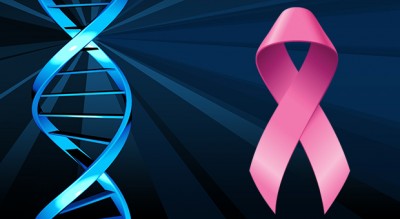About 5 to 10% of breast cancers are thought to be hereditary. The most commonly involved genes in hereditary breast cancer are BRCA1 and BRCA2 (BReast CAncer gene 1 or 2, BRCA1/2).
BRCA1 and BRCA2, in their normal form, play a role in the repair of DNA damage. A mutation (a change at the DNA level) in one of these genes may cause loss of function, thereby promoting cancer development. Females with such a mutation have a significantly increased risk of breast and ovarian cancer. A carrier parent (male or female) has a 50% chance of passing on the mutation to his/her children.
Genetic testing for BRCA1/2 at Saint George Hospital
The first essential step before any genetic testing, and even more importantly, testing for hereditary breast cancer, is genetic counseling, which is offered at Saint George Hospital by an experienced geneticist. The geneticist will take detailed family history, to assess the likelihood that the cancer is hereditary and the possibility of identifying a mutation in BRCA1/2. Various other aspects of the testing are also discussed, including the different techniques to screen for mutations, the implications of the result, the risks and benefits of the test, and other genes that may be involved.
Based on the information provided during the counseling session, the patient is given the opportunity to decide whether to undergo the genetic testor not. Testing is done by taking a small sample of blood (about 5 mls), from which DNA will be extracted and the suspected genes analyzed in collaboration with an accredited reference laboratory abroad.. Results are usually provided within 3 weeks. The patient is invited back for another counseling session to explain what the results mean and what options are available in light of those results.





